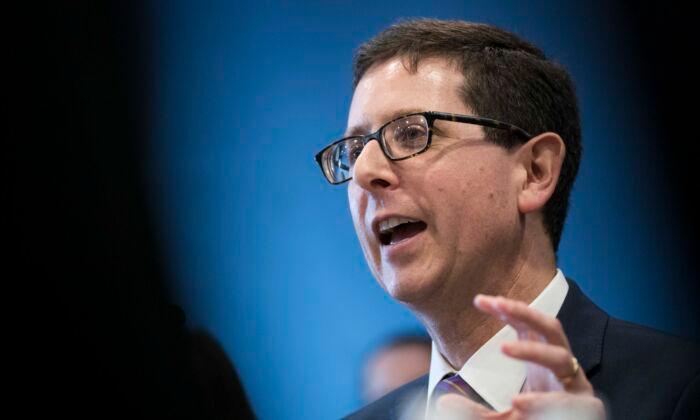The United States could default on its debt sometime over the summer if the president and House Republicans don’t agree to raise the debt ceiling soon, according to the Congressional Budget Office (CBO).
“If the debt limit remains unchanged, the government’s ability to borrow using extraordinary measures will be exhausted between July and September 2023,” CBO Director Phillip Swagel said on Feb. 15.
The government reached its most recent debt ceiling of $31.4 trillion on Jan. 19. That triggered extraordinary measures to prevent the country from defaulting on its loans.
Extraordinary measures are accounting practices that keep the country from defaulting while Congress and the president negotiate. However, extraordinary measures only buy time, and once they are exhausted, default is inevitable.

Speaker of the House Kevin McCarthy (R-Calif.) and Senate Minority Leader Mitch McConnell (R-Ky.) said the country wouldn’t default.
While President Joe Biden initially took a hard stand on what concessions he would make to raise the debt ceiling, he has since softened that position. He is in negotiations with McCarthy over how to raise the debt ceiling.
Biden and Democratic leaders claimed that Republicans want to cut Social Security and Medicare to bring spending in line. Republicans in Congress vehemently deny that claim.
Republican freshman Rep. Josh Brecheen (R-Okla.) echoed his party’s leaders.
“Nobody is talking about cutting Medicare and Social Security. The cuts are coming if we do nothing,” he said. “When we get to insolvency, do we just print money?”
According to the CBO, it’s difficult to say for certain when default may occur because there are many factors at play. The latest projection notes that the final date will be determined by tax revenues the IRS receives in April; the CBO will release another estimate in May that takes into account the tax revenue, Swagel said on Feb. 15.
Spending Deficit More Than $1 Trillion

As the U.S. population ages, an expected jump in mandatory spending will be driven by rising costs for Social Security and Medicare. Federal health care costs are also growing.
Social Security currently costs about $100 billion monthly, and Medicare Advantage health plans and Medicare Part D prescription plans come to $40 billion each month.
Deficit spending is growing faster than expected. The CBO expects the 2023 budget deficit to hit $1.4 trillion, which is $400 billion more than projected. The deficit is expected to grow by about 20 percent, or $3.1 trillion, over the next several years.
This year’s deficit is 5.3 percent of the gross domestic product (GDP). It could climb to 6.9 percent by 2033, outpacing the average of 3.6 percent recorded over the past several years.
According to the CBO, the increased deficit is due mainly to recent legislation, high inflation, and rising interest rates. Spending bills such as the CHIPS and Science Act of 2022, which costs $52 billion, and the $738 billion Inflation Reduction Act of 2022 helped swell the country’s debt load.
Federal debt held by the public is currently 98 percent of GDP. That’s expected to grow to 118 percent in 2033. This will happen because interest costs and mandatory spending outpace the growth of revenues and the economy. If unchecked, it is expected to reach 195 percent of GDP by 2053.





